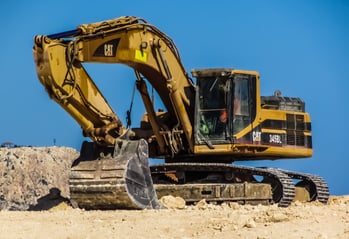
There are instances when tangible asset appraisals are required for effective dates well in the past. In some cases, this time period can be years prior to the actual date of the analysis and report. How do accredited machinery & equipment valuation professionals determine the right approach to these projects, given these retrospective circumstances?
Some of the more common areas where a historic effective date is required would be for the following types of valuations:
Insurance Appraisals: Casualty damages settlements, such as a fire or road accident, which are being litigated or otherwise disputed, are often valued months or years after the initial incident. This is usually because the case has been ongoing for a period of time before the parties determine an equipment valuation is required as part of the dispute.
Property Tax Appeals: Business owners who believe their town or county is basing their property tax assessment on inflated tangible asset values can go through an appeal process in an effort to reduce this annual tax obligation. When determining the overall effect of this tax, the company can reflect back on prior tax years leading up to the current assessment and request an appraisal of their property for multiple periods including these past assessment dates.
Estate Settlement: When a business owner passes away, there is the possibility their estate will need to be valued as part of the overall settlement of property to respective family members and other heirs. This process can become bogged down in the court system and take months or even years to finalize, with the necessity to appraise certain assets to facilitate the settlement. The effective date of these appraisals usually reflects back to the day the individual passed.
Mergers & Acquisitions: In certain cases, when companies require an allocation of value to the respective assets in M&A transactions, the appraisal requirement is not addressed until very late in the process. The due diligence steps involved with larger, more convoluted deals are many, and the appraisal required to reset the accounting of the new entity being acquired may be one of the last. The effective date typically reverts back to the official transaction date.
Regardless of the reason why a retrospective valuation is required, the equipment appraiser should take a consistent approach to adjust for these situations, as the majority of sales comps available today represent current transactions. Reasonable methods to complete this step include utilizing existing databases that may have historic data available to research, valuing older equipment in line with the difference in the time period, and reviewing industry price adjustments between the effective date and the report date. As long as one or more reasonable steps are considered prior to the final estimate of value, a retrospective appraisal is just as reliable and defensible as any other.

